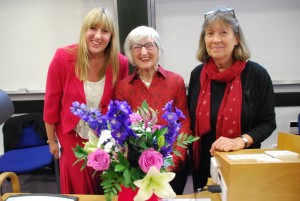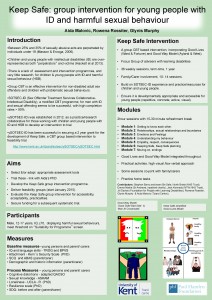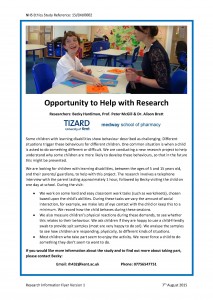The Tizard Centre hosted a very successful event as part of the University of Kent’s 50th Anniversary celebration weekend. We were delighted to have Dr Janet Carr, OBE, as our Guest Speaker. Dr Carr gave a very informative lecture based on her 50 year research project into children with down’s syndrome that has been a lifelong commitment to changing attitudes. After half a century this is the world’s longest-running research project into people with Down’s syndrome.
The longitudinal study began with 54 babies born in the year to November 1964 and living with their families in a part of south-east England. Driven by an interest in people and behaviours and a sharply inquisitive mind, Carr’s aim was to establish the children’s educational needs using intelligence tests such as pattern-matching. The research, which began when the babies were six weeks old, was conceived by the Medical Research Council psychiatric genetics research unit at London’s Maudsley Hospital. It was initially intended to last just 10 months but the young researcher wanted to look longer term and explore family interactions.
“I thought, as well as looking at how the little people are, I’d like to look at how it affected their families. It was widely accepted that having a baby with a disability meant that it would be a disaster, that families would break up. That’s what I expected to find,” she recalls. In fact Carr discovered that, while the babies’ development was slower than their non-disabled peers, families coped well as the children grew, with youngsters bonding and developing good relationships with their brothers and sisters.
This was at a time when the “intellectually handicapped”, as people with Down’s syndrome were then known, were regarded as non-persons to be consigned to institutions. Carr wrote up the research as her doctoral thesis in 1970-71. Although she assumed the project was over, she began sending birthday cards – something she continues to this day. “I wonder what I had in mind writing on birthdays … maybe subliminally [I knew I’d continue]”.





